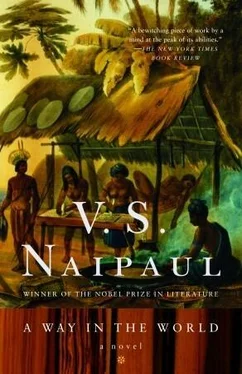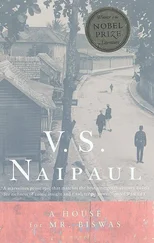“Whatever encouragement Hislop gives, his word is worthless. He is a soldier; his honour lies in obedience. He will feast you today; he is famous as a good host. He will turn his back on you tomorrow, if he is required to do that. You may discover, as we have done, that he has claws. Justice approaches for the fifty-eight men you abandoned off the coast. Justice approaches for you too. You are more alone and unprotected here, in what used to be your homeland, than you ever were in London. Six copies have been made of this letter. At least one will get to you, and you will think of TUPAC AMARU.”
Hislop said, “General, General. I shouldn’t have shown you the letter on your first day. It has unsettled you.”
“It has, I know Spanish hate, but it’s always a shock whenever I am reintroduced to it. This is a letter of hate. You were talking earlier of the hatred the people here got you to feel for the free man of colour whose ears they wanted to cut off. They made you look at him. They told you he believed in his own powers. They showed you hell in his eyes. They made you feel you didn’t have just to punish the man, you had to destroy what was inside him. Spanish hatred is like that. It’s never far away, and it’s mixed up with ideas of faith and truth and retribution. As a punisher you’re in the right. You’re in the place of God.
“I know about this hate because it’s in me too, after all these years. I have dealt in it myself, and I know that what I’ve done is partly responsible for this letter. Hate against hate. I’ve said things about Spain and the Spaniards I shouldn’t have said. I said foolish things, wounding things. I know how to wound them. When I left Caracas in 1771 Spain was the centre of the world for me. History, culture, elegance. The United States didn’t exist — the American colonies were poorer than we were — and the French Revolution was twenty years away. I’m ashamed to tell you how much money I spent on clothes in my first month in Cadiz. It was some years before I saw that the ideas I had had about Spain and its position in the world were exaggerated. When I deserted from the Spanish service and went to the United States in 1783, at the end of the war, I found for the first time I could say things about Spain that I had grown to feel. And it actually did me no harm. I saw that. And then there was the execution of the second Tupac Amaru. That affected me more than the Americans I was with. I began to say things I shouldn’t have said. The president of Yale rebuked me one evening. He said the Spaniards had a higher regard for law than I allowed. I said I knew about Spanish legalism: I had graduated in law from the University of Mexico. I made that up on the spur of the moment. It came out very easily, and it silenced him.
“It was much worse when I went to Russia. I felt I was so far away that it didn’t matter what I said about Spain or myself. I made full use of the freedom, I should tell you. And the empress and her nobles were so interested, so protective. I was dazzled. I felt it was what I was born for. I had never felt so safe. I said things about Spain to please them, dreadful things about the Inquisition and superstition and Spanish ignorance and degeneracy, dreadful things about the Spanish king and his son, the Prince of Asturias.
“I was in demand. One night at a gathering in St. Petersburg a fine gentleman I hadn’t met, as soon as he caught sight of me, came right across the room towards me. I smiled and bowed, getting ready for his Russian French, expecting him to be hampered by the language but friendly and interested and as anxious to invite me to his house as so many of the other Russian noblemen I had met. It wasn’t French that came out of this fine gentleman’s mouth, but Spanish, the Spanish of Spain, spoken in a tone and with the forms you would use with a servant. He was the Spanish chargé d’affaires, Macanaz. He wanted me to produce — there and then, almost — the Spanish patents which made me a colonel and a count. That was my style in Russia. It did no one any harm, and it gave the Russians pleasure. I was staggered by his contempt. It was the contempt of the well-born Spaniard from Spain for the South American. I felt shabby, caught out. It was like being pushed back to the Caracas of twenty years before. I was about to say that I had served for some time in the Princess Regiment and had retired from the service as a colonel. But at the last moment I changed my mind, and the crudest street-corner obscenities of Caracas came out of my mouth. In any other setting he would have had to draw his sword. But in that room he had to digest the insult. He didn’t forget, of course. He wrote to the ambassador, and the ambassador wrote around to other people about me. I thought about that incident quite recently, when the Bee and the Bacchus were cut off. It was very strange. I was leading an invasion, something I had talked about for years, and then with the memory of that far-away St. Petersburg room I thought, ‘And now you’ve put yourself within their reach.’ ”
Hislop said, “What will happen to those men?”
“No question. The Spaniards will treat it very seriously. The officers, Donohue and Powell and the others, will be executed. The men will all be imprisoned. I always told them. Tell me — this is about something in the letter — why do you think all the agents I sent out here failed me, or went bad? You know about Bernard. I know about the others.”
“They got tired of waiting. They lost faith. Like Picton. In spite of what people say about him, he didn’t come here to buy estates. He never wanted to be a planter. He is a military man, and he came here hoping for action. They promised big things in South America, but the alliances kept changing in Europe, and the politics kept changing in London. The invasion was postponed and postponed. You can’t ask a man to wait and wait. Not everyone has your steadfastness, General.”
“Steadfastness. I don’t know. Perhaps there has never been an alternative. No second possibility ever came up. No one has ever offered me a second idea.”
“No one would ever think of doing that, General.”
“There was a time when I used to talk against Picton in London. I thought he was destroying my agents and destroying the revolutionaries from across the Gulf. I was wrong. Old Manuel Gual and the others who were killed here were killed by a Venezuelan I now know about; Caracas recruited him and gave him the famous glass pills. The one man of mine Picton expelled and sent back to Europe turned out to be a fraud. My bad judgement again. The man could write me a witty letter about the unreliable revolutionaries of France, and then, almost on the same day, write a tearful letter to the king of Spain, begging to be forgiven. Picton expelled him almost as soon as he saw him. I was enraged when I heard, but he did me a service there.
“Actually there was another reason why I talked against Picton. But I couldn’t admit it to anyone. In 1798, without knowing anything about me or my past or all the work I had done for the revolution, he wrote to London about me. He said they might find me useful, but I shouldn’t be told too much. The actual words were much worse. I can’t forget them. They were reported back to me by my friend Rutherfurd. Those words did me much harm with the ministers. I know them by heart. ‘There is a native of Caracas now in London who might be useful on this occasion, not that he possesses a great local knowledge, or has any considerable connection, being the son of a shopkeeper of Caracas …’ This was nearly thirty years after I had left home. I had done so much, established my cause and my character, taken so many risks. He had ignored all that. And he himself had done nothing.”
Hislop said, “He was only repeating what the Caracas people had put in his way, to damage you.”
Читать дальше












